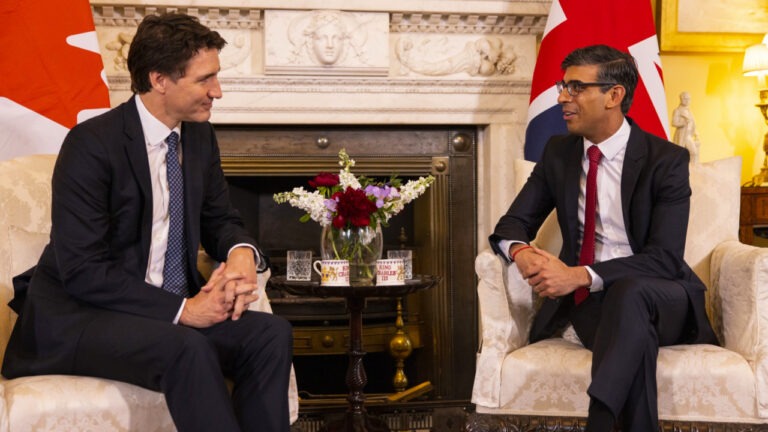
James Skinner
James is the Founder & Chief Executive of
CANZUK International in Vancouver, Canada
In the core mission of enhancing freedom of movement, fostering free trade, and deepening foreign policy cooperation among Canada, Australia, New Zealand, and the United Kingdom, there emerges an intriguing proposition – the expansion of this remarkable partnership into the captivating realm of space exploration.
As four highly developed nations, tightly knit by shared values and historical bonds, it only stands to reason that they should seek to reinforce their relationship by embarking on celestial collaboration.
One profound approach is to engage in cooperative space missions that not only expand our cosmic knowledge but also cement the bonds between these nations.
One profound approach is to engage in cooperative space missions that not only expand our cosmic knowledge but also cement the bonds between these nations.
The allure of space exploration lies not only in its potential for groundbreaking discoveries and technological progress, but also in its capacity to fortify the unity between CANZUK nations. Envision a future where Canadian astronauts collaborate seamlessly with their Australian, New Zealander, and British counterparts on missions to celestial bodies like the Moon, Mars, or beyond. Such cooperation would not merely demonstrate the collective might of these nations but also serve as a resounding testament to the shared values of freedom, democracy, and scientific advancement that form the bedrock of the CANZUK alliance.
Pooling resources and expertise in space exploration can provide significant advantages to all four countries. Space missions are resource-intensive endeavors, and by consolidating their efforts, Canada, Australia, New Zealand, and the United Kingdom can optimize their budgets while ensuring access to state-of-the-art technology and knowledge. This collaborative approach has the potential to yield more ambitious missions, greater scientific output, and an enhanced global presence in space exploration.
Moreover, just as free university education fosters cultural exchange and understanding among CANZUK nations’ students, cooperative space exploration can inspire the next generation of scientists, engineers, and explorers. Joint space missions offer unparalleled educational opportunities for their citizens. Picture a Canadian student interning at the Australian Space Agency, or a British researcher collaborating with counterparts in New Zealand on a lunar habitat project. These experiences have the power to ignite a passion for space exploration and lay the foundation for future scientific breakthroughs.
The economic implications of investing in space exploration are profound, and CANZUK nations can reap significant benefits from such undertakings. Collaborative space projects stimulate innovation, generate high-skilled employment opportunities, and fuel economic growth. Additionally, joint space missions can attract international partnerships and funding, further solidifying the economic ties between these four countries.
In essence, as CANZUK International continues to champion stronger ties among Canada, Australia, New Zealand, and the United Kingdom, the extension of their collaboration to space exploration presents a visionary trajectory. By uniting their efforts in the quest to explore the cosmos, these nations can deepen their social, economic, and political bonds, all while pushing the boundaries of human knowledge and discovery. Together, they can inspire the world and exemplify that when like-minded nations unite, there are no limits to what they can accomplish.
Pooling resources and expertise in space exploration can provide significant advantages to all four countries. Space missions are resource-intensive endeavors, and by consolidating their efforts, Canada, Australia, New Zealand, and the United Kingdom can optimize their budgets while ensuring access to state-of-the-art technology and knowledge. This collaborative approach has the potential to yield more ambitious missions, greater scientific output, and an enhanced global presence in space exploration.
Moreover, just as free university education fosters cultural exchange and understanding among CANZUK nations’ students, cooperative space exploration can inspire the next generation of scientists, engineers, and explorers. Joint space missions offer unparalleled educational opportunities for their citizens. Picture a Canadian student interning at the Australian Space Agency, or a British researcher collaborating with counterparts in New Zealand on a lunar habitat project. These experiences have the power to ignite a passion for space exploration and lay the foundation for future scientific breakthroughs.
The economic implications of investing in space exploration are profound, and CANZUK nations can reap significant benefits from such undertakings. Collaborative space projects stimulate innovation, generate high-skilled employment opportunities, and fuel economic growth. Additionally, joint space missions can attract international partnerships and funding, further solidifying the economic ties between these four countries.
In essence, as CANZUK International continues to champion stronger ties among Canada, Australia, New Zealand, and the United Kingdom, the extension of their collaboration to space exploration presents a visionary trajectory. By uniting their efforts in the quest to explore the cosmos, these nations can deepen their social, economic, and political bonds, all while pushing the boundaries of human knowledge and discovery. Together, they can inspire the world and exemplify that when like-minded nations unite, there are no limits to what they can accomplish.
Share this:
Facebook
Twitter
LinkedIn
WhatsApp
Email





